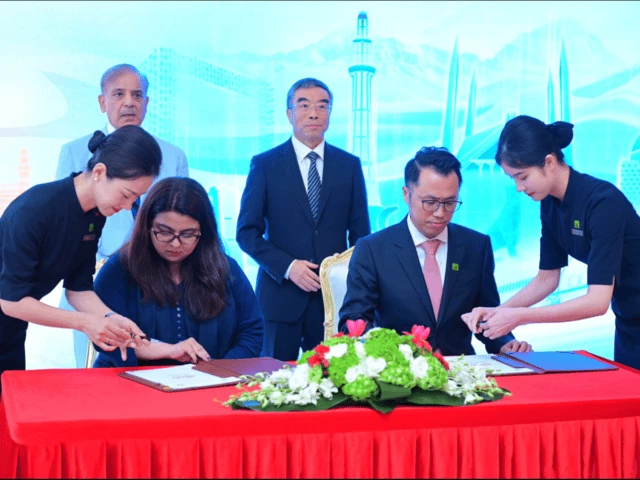Government partners with Huawei to train Pakistani youth in IT skills
Up to 300,000 slots available

If you’re an engineer completing your four-year bachelor's programme and enter the industry, companies are frustrated you have no experience. But now, Huawei and the Pakistan government are trying to fill this gap by training 300,000 young people.
“If even one million youth earn an average of $10,000 annually, the economic impact would be massive,” an official from the Ministry of Information Technology and Telecommunication told APP wire agency.
The announcement of the partnership comes as the federal cabinet approved the National AI Policy to turn Pakistan in a digital-based economy.
The IT ministry launched a training portal at the inauguration at the Huawei Islamabad head office on January 1.
Programmes will target a range of people from those undergoing secondary education to trained professionals, Pakistan Software Export Board said.
How did we end up here?
Prime Minister Shehbaz Sharif signed the agreement at Huawei's Shenzhen headquarters in 2024. Since then, the HEC has been holding training-of-trainers sessions as well as the training of students and professionals, a Huawei official said.
What is in the Huawei programme?
Huawei has 100 academies spread across universities in Pakistan. Through them, over 300 people are certified as Huawei trainers. They train students during their bachelor's programmes in ICT and networking systems, conduct exams, and award certificates, according to the Pakistan Software Export Board and Huawei.
Huawei has developed more than 30 ICT labs on campuses.
You can apply on the portal for 18 courses, ranging from introductions to AI and the cloud to three-month research projects. These courses are self-paced and self-taught. At the end, you sit a certification exam. Higher levels—associate, professional, and expert—of coursework and training are offered.
The DigiSkills online learning platform has around 700,000 people, the Huawei official stated. The government aims to have 10% of them for the training programme.
University students can register on the portal as 241 higher education institutions are connected through the Pakistan Education Research Network managed by Huawei.
Teachers at federal institutions, such as in Azad Jammu & Kashmir and Gilgit-Baltistan, will be trained to train students. Approximately 70,000 students are already registered and have taken courses on the platform.
Potential limitations
The portal cannot provide hands-on experience which will be needed in certain subjects.
"Perhaps the government is speaking with other partners," said the official. "What I can say is that this is what we will achieve: with us, it’s only 300,000.”
The government's goal is one million people, but it is unclear how it will hit that number.
Training for professionals requires in-person sessions, and the programme has a long way to go before it can reach provincial schooling systems, the official added...



















COMMENTS (5)
Comments are moderated and generally will be posted if they are on-topic and not abusive.
For more information, please see our Comments FAQ